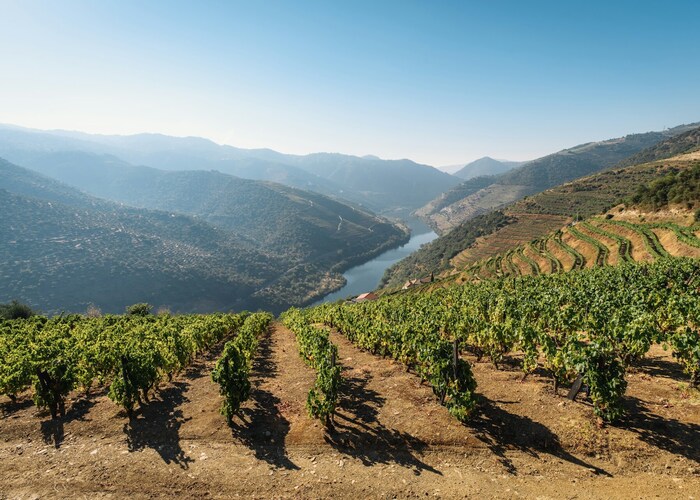Portugal vineyards along the Douro River, in the scenic Alentejo area, and the Algarve region are home to some of the best wineries in the world. In recent years, and thanks to the country’s thriving tourism and viticulture sectors, Portugal has become a top food, wine, and culture destination, attracting tourists interested in discovering the best selection of Portuguese wines and their origins.
This EU country bordering Spain on the Iberian Peninsula is renowned for its sweet and flavorful Port wine which is produced in the Douro Valley in Porto, Portugal. However, Portuguese wine producers offer much more to explore, from fruity red wines to crisp sparkling wines. In this article, we will explore the variety of wines the country produces and guide international investors interested in buying a vineyard and becoming part of Portugal’s exciting wine industry through the best wine regions to invest in and how to do it.
Exploring the History of Wine in Portugal

Portugal is currently one of the top 10 wine-producing countries in the world, according to the World Population Review. So, how did this small Western European gem begin its successful wine production journey? We will explore more about the history of winemaking in Portugal and the current state of the wine market in the sections below.
Who were the first winemakers in Portugal?
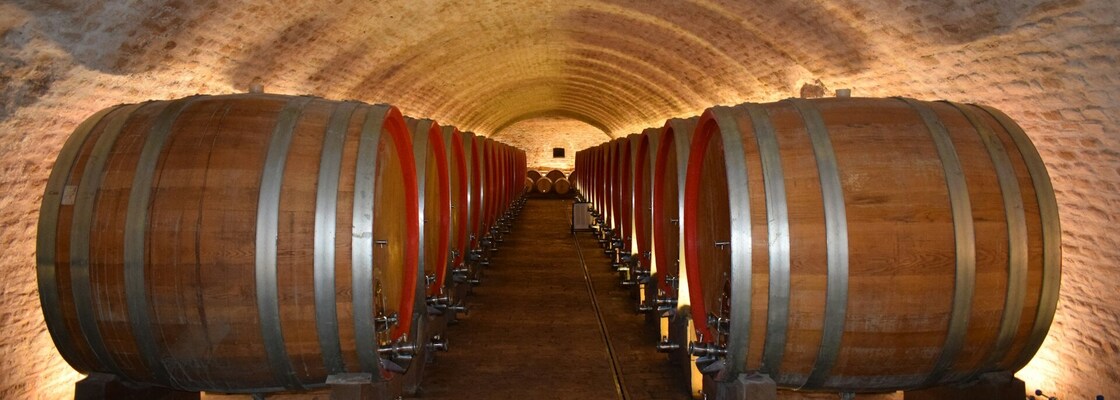
The origin of wines in Portugal seems to date back to around 2000 BC, marking the beginning of a long and rich viticulture heritage on the Iberian Peninsula, now home to modern-day Spain and Portugal, two of the top 10 countries that produce wines in the world.
The first winemakers in Portugal were the Tartessians from Spain, who planted vines in the southern Sado and Tagus valleys. By the 10th century BC, the Phoenicians from Greece arrived and introduced new grape varieties and winemaking techniques, expanding viticulture beyond the coastal areas in the south of Portugal.
As time progressed, the Ancient Greeks, Celts, and Romans further spread viticulture and winemaking traditions to the north of Portugal. One of the most famous Portuguese wine varieties, Port wine, was created in the 17th century in the steep vineyards of the Douro Valley. This region’s mixed soils and unique terroir contributed to the distinct
characteristics of Port wine, which has become synonymous with Portuguese winemaking and is now enjoyed across the world.
In the extreme northwest of Portugal lies the Vinho Verde region, particularly the Minho province, where Alvarinho wines are produced from vines along the River Minho. The light, fresh notes of Vinho Verde (green wine) offer a warm and inviting taste experience. The map of Portuguese wines is divided into various categories, each showcasing the diverse terroir and blends found throughout the country.
From the bustling city of Lisbon to the quaint quintas in the countryside, the passion for winemaking is evident. Visitors can discover the gold standard of Portuguese wines, from robust reds to crisp white wines, and enjoy the spirit of a tradition that has been cultivated for millennia in Portugal’s wine regions.
England and Portugal’s trade ties
England and Portugal’s trade ties date back to the 12th century, with documented shipments of Portuguese wine from Minho to England. Political and military conflicts occasionally threatened this supply, prompting England to seek alternative sources. The existence of these documents indicates a longstanding wine trade between the two nations.
Modern-day wine in Portugal
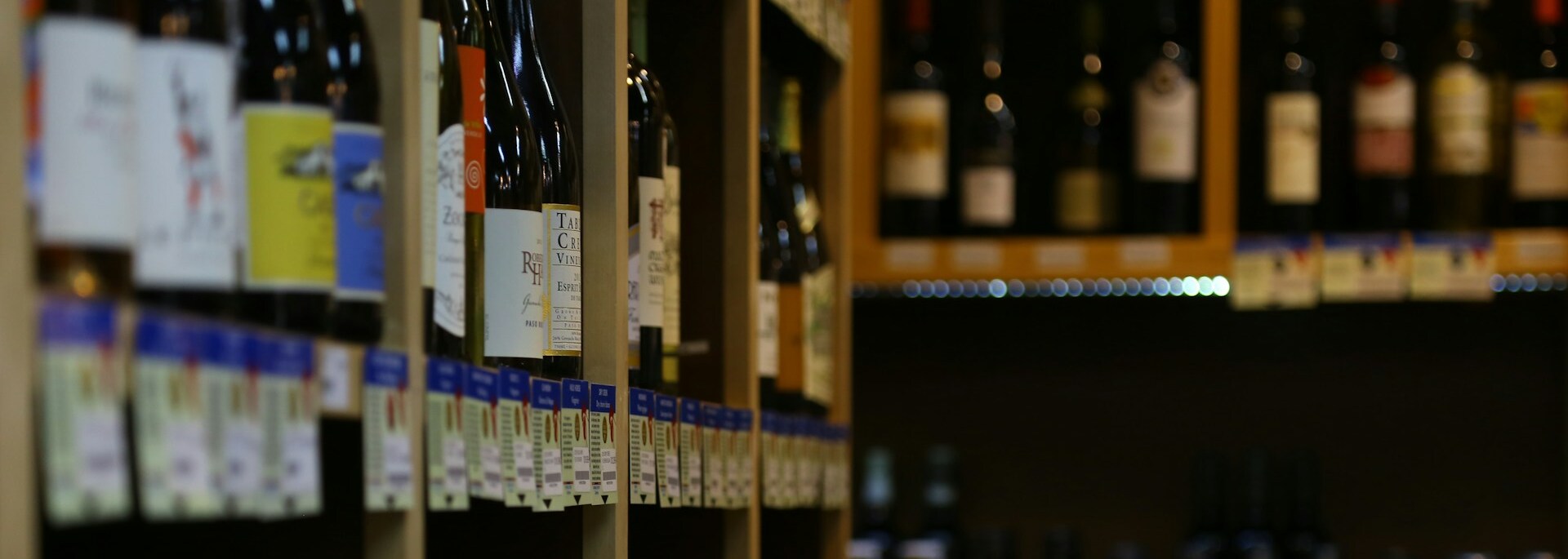
Portugal’s wine industry has flourished significantly since its ascension to the European Union in 1986, which brought in grants, financing, and advanced winemaking techniques. This integration allowed Portugal to engage in extensive trade with the rest of Europe and the world, enhancing the global recognition of its wines.
Portugal has become renowned for its unique grape varieties and acclaimed wine regions, located in the Alentejo region and Douro and Vinho Verde valleys. These areas produce some of the world’s finest wines, reflecting Portugal’s rich winemaking heritage.
The financial support and growth in popularity, coupled with foreign investments, led to technological upgrades and refined production methods. The introduction of boutique wineries and quintas, revolutionized the industry, shifting from “rustic” wines to cleaner, more sophisticated offerings that cater to international palates.
The Cost of Buying a Vineyard in Portugal
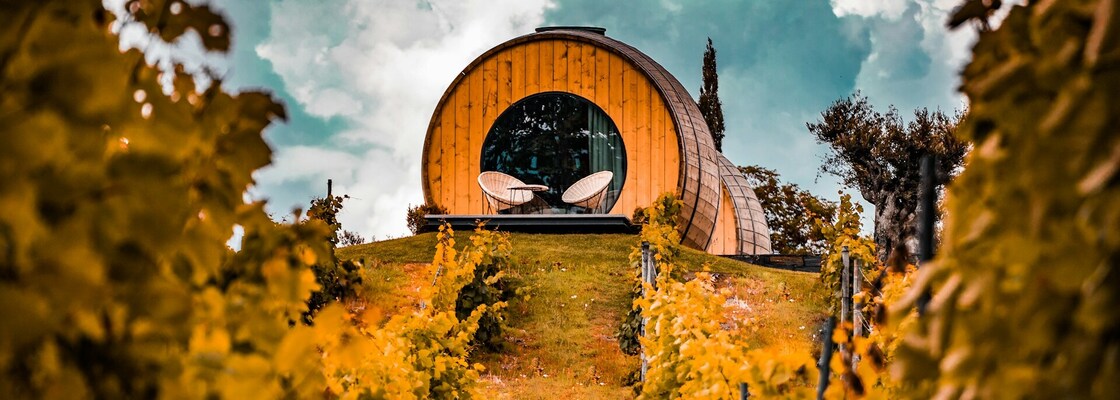
Portugal’s location on the Atlantic Ocean has influenced many aspects of its culture, including its wine regions, winemaking, grape varieties, and unique wines. When it comes to investing in Portugal luxury real estate, owning a vineyard or quinta may just top the list. Tourism and wine-tasting adventures also contribute to the allure of owning a vineyard in this picturesque country.
The average house price in Portugal is currently €1,619 per square meter. However, it is important to note that the price of purchasing a vineyard in Portugal will cost more than the average house price and vary based on the size of the vineyard, location, and winemaking resources and equipment available on the property. Generally, an existing vineyard with all the equipment and space will cost you upwards of €1 million.
For instance, a quick online search will reveal that you can find a 9,615 square meter lot situated in the Porto district priced around €1,621.46 per square meter. The table below showcases the current average property prices in major Portuguese districts, which you
can use as a pricing guideline dependent on the region, size, and features of the vineyard you are interested in purchasing. Keep in mind that purchasing a vineyard will cost more than this and the price will vary based on location, size, and amenities.
Portuguese District | Average Property Price in 2023 (€/m2) |
Lisbon Metropolitan Area | €4,06 |
Porto Metropolitan Area | €3,29 |
Northern Portugal | €1,74 |
Central Portugal | €1,86 |
Alentejo | €2,69 |
Algarve | €3,90 |
The Best Locations to Find Vineyards in Portugal
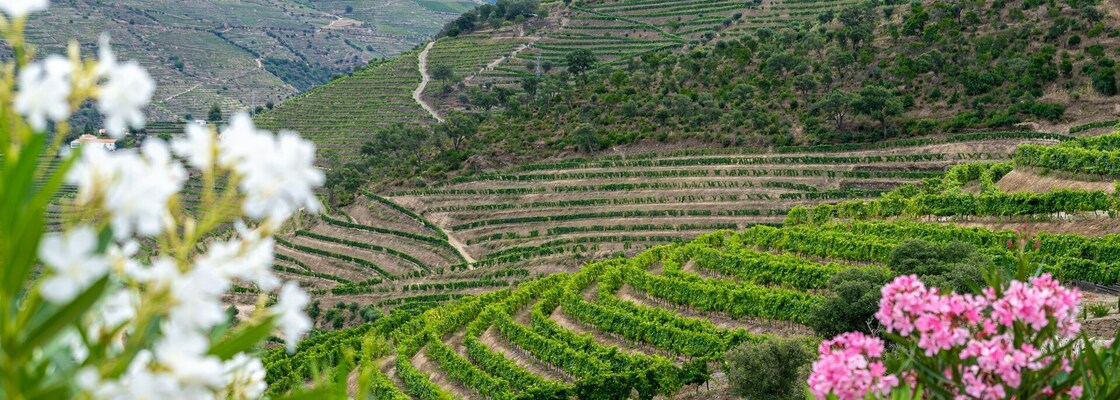
Below, we will explore the best locations to find vineyards, which also happen to be some of the most desirable locations in Portugal to invest in property.
Douro
The Douro region in northern Portugal, renowned for its vineyards, boasts a UNESCO World Heritage site. The Douro River, flowing from Spain to Porto, enriches the soil, perfect for producing exceptional red, white, and Port wines. Owning a vineyard here places you at the heart of Portugal’s distinguished winemaking tradition.
Alentejo
The Alentejo region’s warm, dry climate is perfect for crafting wines, and over the past few years, it has become a significant area for wine production. Although they’re not as well known as the Douro in the north, Alentejo wines have gained considerable international recognition, becoming regarded as amongst the very best in the world. Bordered by the Tagus River in the north and the Algarve to the south, the Alentejo is popular for its picturesque towns and villages, gorgeous scenery, and delectable local produce – making it one of the top locations for the Portuguese to escape from city life.
Algarve
The Algarve region, with its lush, fertile land and hot climate, is one of the best locations to find vineyards in Portugal. The Algarve wine trail, running from Lagos to Albufeira, showcases celebrated wineries and new vineyards that have gained global recognition. This scenic area offers expansive hectares dedicated to wine-making.
Dão
Located just south of the renowned Douro Valley, the Dão region is a prime area for Portuguese vineyards. Nestled along the Dão River, it is famous for its deep red wines made from Tinta Roriz and Touriga Nacional, as well as excellent white wines from the Encruzado grape variety.
Vinho Verde
The Vinho Verde region, nestled in Portugal’s Minho province near the border with Spain, is renowned for its crisp and refreshing wines that are perfect on a long summer’s evening. Originally defined in 1908 and expanding since it showcases a diversity of styles from its six distinct areas like Monção and Lima. Known for its young wines, Vinho Verde captivates with its vibrant flavors and rapid enjoyment post-harvest.
Working with Property Professionals

When buying property in Portugal, particularly something unique like a vineyard, expert advice is crucial. Professionals in the field can navigate the complexities of licensing, legal requirements, and practicalities involved in vineyard ownership. Partnering with a reputable real estate agent or buyer’s agent is highly beneficial.
Keep in mind that effective communication with your chosen agents is essential. When you begin the property purchase journey, clearly outline your requirements so they can identify properties that align with your criteria. This collaborative approach ensures a smoother, more informed purchasing experience, ultimately helping you secure a property that meets your expectations and investment goals.
Find Your Dream Property with BE Global
BE Global Properties is the discerning property investors’ gateway to meticulously curated properties that transcend ordinary listings. Look no further when searching for your next dream home or investment property in the Portuguese luxury real estate market.
Explore our exclusive listings and work with our experts who offer market insights for smart investment choices and exceptional customer service to find the property investment perfectly tailored for your lifestyle.
Contact BE Global Properties today and start your journey to find your global haven.
Frequently Asked Questions About Portugal Vineyards for Sale
Where can I find vineyards for sale in Portugal?
If you’re seeking vineyards for sale in Portugal, explore areas like the Douro wine valley. The Douro is a UNESCO World Heritage site and offers exceptional vineyard opportunities along its fertile riverbanks. The Alentejo region’s tranquil landscapes and acclaimed wines make it another prime location to consider investing in Portugal’s thriving wine industry. The Dão, Vinho Verde, and Algarve regions are also great options with a strong winemaking tradition and history.
What should you look out for when purchasing a vineyard in Portugal?
Several key considerations are essential when purchasing a vineyard in Portugal. Begin by defining your requirements and conducting initial online research for available options. Expert advice is crucial for understanding pricing, legal processes, and licensing. Consulting with a wine production expert can also guide you on optimal regions and grape varieties.
Is purchasing a vineyard a good investment?
Investing in a vineyard can be a lucrative venture, especially in Portugal’s wine-centric regions like the Alentejo and Douro Valley. These areas promise high growth potential, bolstered by Portugal’s compact size and accessibility to rural landscapes. With strong local demand and export opportunities, vineyards offer promising returns, making them favorable investments in Portugal’s flourishing wine industry.
What are the best table wines in Portugal?
Portugal offers a diverse array of top-quality table wines catering to various preferences. Notable choices include Douro and Alentejo red wines, celebrated for their robust flavors. For lighter options, Vinho Verde is ideal, especially enjoyable during summer. Additionally, Portugal boasts exceptional fortified wines like Port from the Douro Valley and Madeira from its namesake islands.
What are the legal requirements for buying a vineyard in Portugal?
When buying a vineyard in Portugal, ensure you have essential documents like your NIF number from the tax office, a valid photo ID, and a Contrato Promessa de Compra e Venda (CPCV) detailing purchase terms. An Energy Certificate and payment of Imposto de Selo (stamp duty) are also required. Caderneta Predial, a land registry certificate, confirms property details crucial for legal compliance. Consulting legal experts ensures adherence to local regulations.
How do I find vineyards for sale in Portugal?
To discover vineyards for sale in Portugal, start with online real estate platforms, though they may not list all available properties due to market fragmentation. Engaging local real estate agents is advisable for personalized assistance, considering how many wine regions there are in the country. You can also attend vineyard auctions or industry networking events for additional opportunities and insights.
What are the key factors to consider when choosing a vineyard to buy in Portugal?
When selecting a vineyard in Portugal, crucial factors include location, soil quality, climate suitability, and water access. Consider the grape varieties grown, existing infrastructure, market demand, and opportunities for expansion or diversification. These elements ensure a sound investment and align with your vineyard goals and production ambitions.
How much does it typically cost to buy a vineyard in Portugal?
The cost of purchasing a vineyard in Portugal varies widely depending on factors such as size, location, and existing infrastructure. Generally, expect prices starting at around €1 million for a vineyard with adequate equipment and space. Prices can fluctuate based on specific regions and additional features like winemaking facilities and land quality.
What are the most popular wine regions in Portugal for buying vineyards?
For those interested in purchasing vineyards in Portugal, prime regions include the UNESCO World Heritage Douro Valley, renowned for its fertile riverbanks and prestigious wines. The tranquil Alentejo region offers exceptional landscapes and acclaimed wines. Consider the historic Dão, vibrant Vinho Verde, and scenic Algarve for diverse opportunities in Portugal’s esteemed wine industry.
Can foreigners buy vineyards in Portugal, and are there any restrictions?
Yes, foreigners can buy vineyards in Portugal without restrictions. Non-Portuguese citizens enjoy the same property purchasing rights as locals, including the right to own land. However, residence permits are necessary for extended stays.
What financing options are available for purchasing a vineyard in Portugal?
Banks in Portugal offer mortgages to foreigners, requiring deposits ranging from 10 percent to 20 percent for residents and about 30 percent for non-residents, though this percentage may vary. Consulting a mortgage broker can provide specific advice on available financing options.
What are the tax implications of owning a vineyard in Portugal?
Owning a vineyard in Portugal entails various tax considerations. During purchase, the Municipal Property Transfer Tax (IMT) applies, ranging from 0 to 10 percent, based on property value, location, and usage. Stamp Duty (Imposto do Selo) is another cost, typically 0.8 percent of the property value. Post-purchase, owners must budget for Municipal Property Tax (IMI), based on the Property Tax Value (VPT), and Additional Municipal Property Tax (AIMI) for properties valued over €600,000, varying from 0.7 to 1.5 percent annually. You can learn more in our guide to property taxes in Portugal article.

